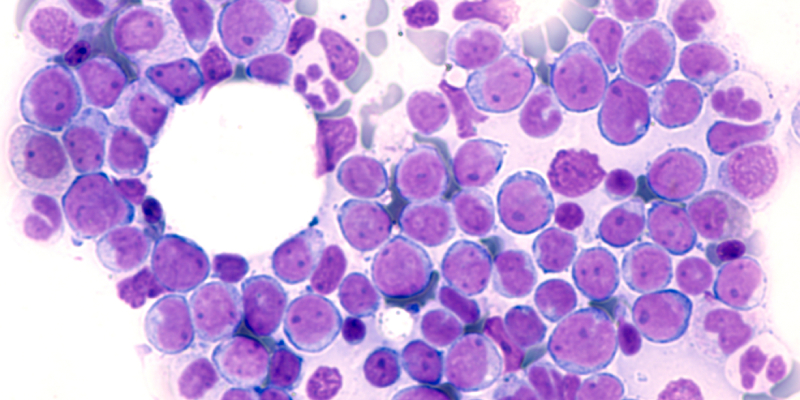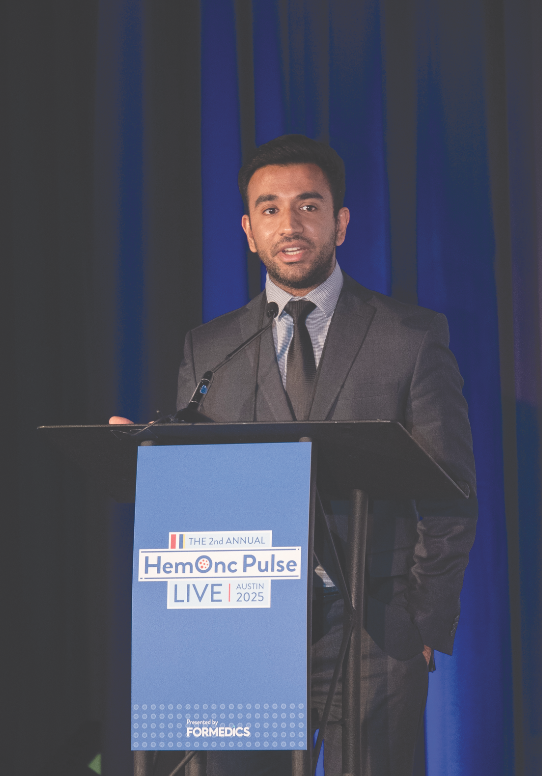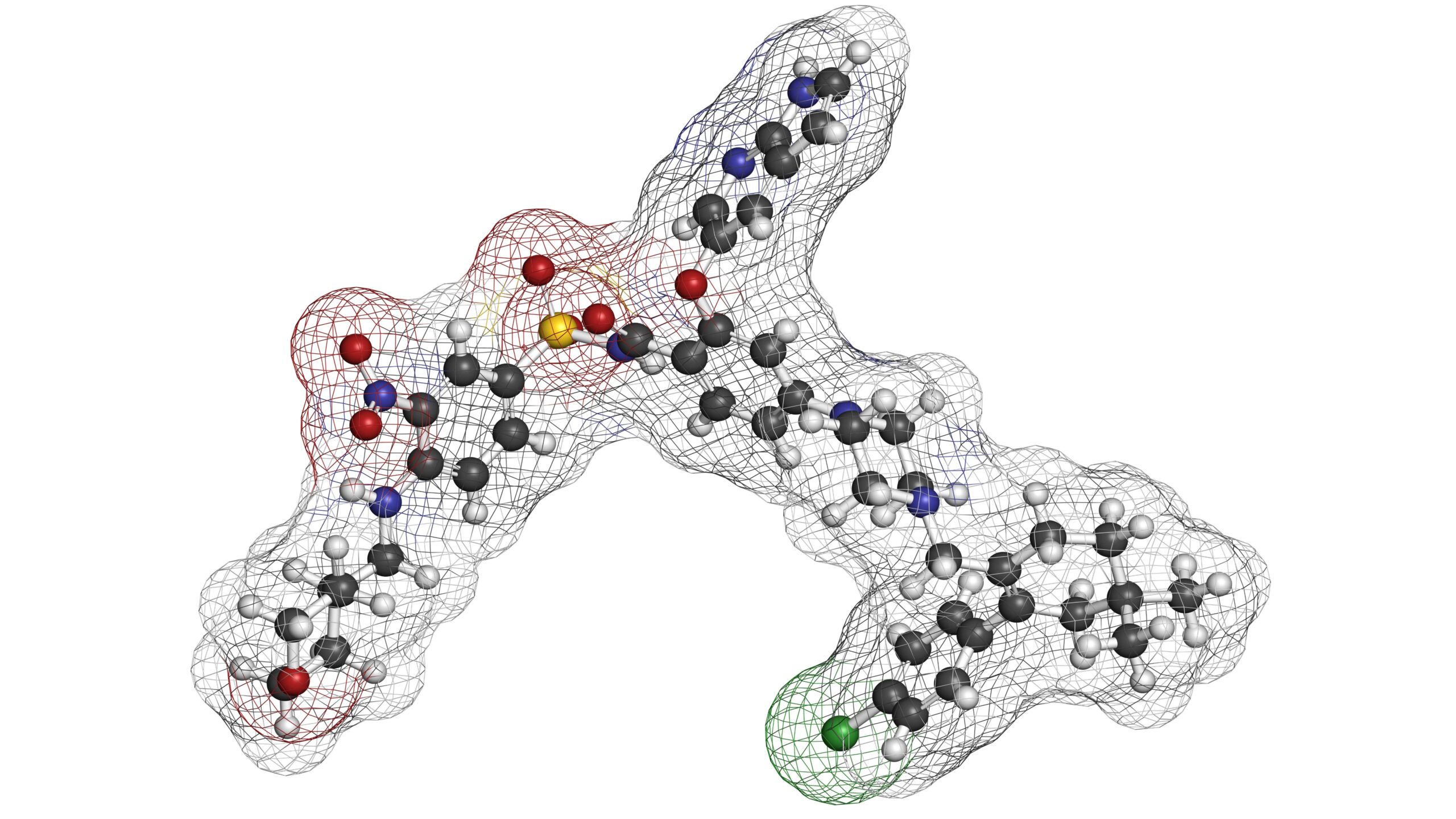
Researchers have identified potential mechanisms of resistance to gilteritinib plus venetoclax in patients with relapsed/refractory FLT3-mutated acute myeloid leukemia (AML).
Vanessa E. Kennedy, MD, of University of California San Francisco, and colleagues, presented the research during the 2022 American Society of Hematology Annual Meeting.
Gilteritinib, an FLT3 inhibitor, plus the BCL-2 inhibitor venetoclax, demonstrated a modified complete response rate of 75% in this patient population in a phase 1b trial. Unfortunately, many patients relapsed after gilteritinib plus venetoclax, Dr. Kennedy and colleagues wrote.
In this study, Dr. Kennedy and colleagues used single-cell multi-omic profiling to identify possible drivers of resistance to gilteritinib plus venetoclax.
They analyzed 107,528 cells from 12 patients with two to five serial timepoints. Of the 12 patients, eight had previously received a tyrosine kinase inhibitor (TKI). Nine of the 12 patients had clinical response to gilteritinib plus venetoclax with a median relapse-free survival of 8.3 months, and three of these nine patients proceeded to transplant.
At least one genetically distinct clone was identified in every patient analyzed. Specifically, 14 mutated FLT3 clones were found, and two patients had two separate mutated FLT3 clones. Treatment with gilteritinib plus venetoclax reduced mutated FLT3 clones in all 12 patients, including seven who had clones reduced to an undetectable level.
FLT3-IDH1/2 co-mutated clones were found in three patients, but these were reduced to undetectable levels after gilteritinib plus venetoclax treatment in all three.
The results suggested gilteritinib plus venetoclax may have activity against non-FLT3 populations, as nine patients had an initial decrease in these clones, including clones with DNMT3A, NPM1, IDH1/2, TET2, EZH2, WT1, and NRAS mutations.
Genetic resistance was associated with outgrowth of pre-existing subclones, primarily RAS mutations, the researchers noted. Five patients had at least one pre-existing NRAS or KRAS-mutated clone. In the majority of these patients, the mutated RAS clone expanded with therapy and was dominant at relapse. Four of the five patients who had expanding mutated RAS clones had prior treatment with a TKI. The one patient with mutated RAS decrease had no prior exposure to TKI.
In two patients, mutated FLT3 clones present prior to gilteritinib plus venetoclax exposure initially decreased but later expanded on therapy.
Reference
Kennedy VE, Peretz C, Lee P, et al. Multi-omic single-cell sequencing reveals genetic and immunophenotypic clonal selection in patients with FLT3-mutated AML treated with gilteritinib/venetoclax. Abstract #933. Presented at the 64th ASH Annual Meeting and Exposition; December 10-13, 2022; New Orleans, Louisiana.






 © 2025 Mashup Media, LLC, a Formedics Property. All Rights Reserved.
© 2025 Mashup Media, LLC, a Formedics Property. All Rights Reserved.